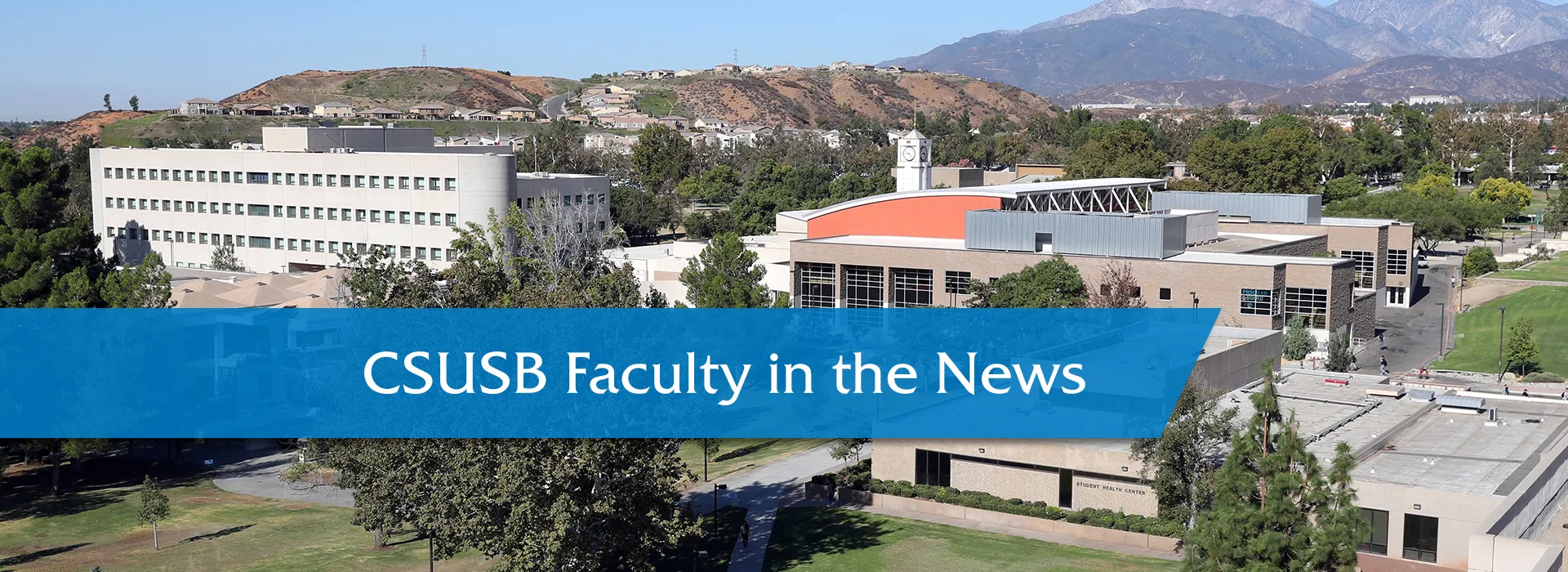
Tony Coulson, director of Cal State San Bernardino’s Cyber Security Center, wants the city to be known nationally for something other than being the site of tragedies, he told The Sun.
“We’re trying to train our students to do jobs that haven’t been invented yet,” said Coulson, a professor of information and decision sciences, housed in the Jack H. Brown College of Business and Public Administration, in an interview. He doesn’t teach his students computer science or engineering. Instead, he teaches them to put it all together and use it to fight back against hackers and other cyber security challenges that could leave the region and country vulnerable.
Yet, there is a big gap to fill, with a reported 1 million cyber security jobs — which pay an average of $80,000 annually — unfilled, and U.S. universities graduating 10,000 cyber security specialists.
Earlier this spring, however, the U.S. House of Representatives approved H.R. 1301, which included $5 million to restart cyber security scholarships that Rep. Pete Aguilar, D-San Bernardino, got added to the National Defense Authorization Act for Fiscal Year 2017, which was signed into law on Dec. 23. The program works similarly to ROTC scholarships, making it easier for students studying cyber security to become officers in the Army and Air Force. Military cyber security staff defend military computer infrastructure, but also conduct offensive cyber warfare.
In the meantime, CSUSB’s Cyber Security Center is teaching local students, many of them Hispanic and an above-average amount of them women, how to tackle the security challenges of the future. And, Coulson said, many of them are already landing great jobs with the federal government and elsewhere.
“You go to Washington, D.C., with me and I’ll call an alumni event and we’ll have 30 students there,” Coulson told The Sun. “We have incredibly bright kids, they just need the training and opportunity.”
The article, which also appeared in the Inland Valley Daily Bulletin and Redlands Daily Facts on April 27, 2017, may be read at “ROTC-for-cybersecurity scholarship returns to CSUSB with Aguilar’s help.”
The cancellation of conservative commentator Ann Coulter’s appearance at UC Berkeley — considered the birthplace of the 1960s free speech movement — continued the national discussion of how college campuses should handle the presentation of ideological viewpoints from both ends of the political spectrum under the U.S. Constitution’s First Amendment.
The Christian Science Monitor contacted Brian Levin, director of Cal State San Bernardino’s Center for the Study of Hate and Extremism and a constitutional lawyer, for an article about the application of the First Amendment’s right to free speech and expression. In preventing conservative viewpoints from being heard on college campuses, the implication is that liberal ideas are more deserving of First Amendment protections than conservative ones, Levin said. But all speech, Levin told reporter Jessica Mendoza, regardless of content, has intrinsic value.
“It's about allowing unfettered access to viewpoints,” said Levin, a criminal justice professor at CSUSB.
The article, published April 26, 2017, may be read at “Berkeley paradox: Birthplace of free speech now offended by it.”
The Orange County Register interviewed Levin for an article about the increase of anti-Semitic incidents in California — up 21 percent in 2016 over the previous year, according to the Anti-Defamation League’s annual Audit of Anti-Semitic Incidents released April 24.
While Jews are the most warmly accepted religious group in the United States other than Christianity and anti-Semitic harassment in the U.S. has been at historic lows in recent years, Jews have also consistently remained the number one target of hate crimes and incidents, said Levin.
“The ADL data appear to be a confirmation of our contention that the near-decade national decline in anti-Semitic hate crime is over because of the coarsening of politics, the continuing dissemination of negative stereotypes about Jews, and the emboldening of younger tech-savvy web-based alt right hate mongers,” he said.
Until recently, the alt right saw a savior in President Donald Trump, Levin said.
“But now, with the elevation of Jared Kushner and the president becoming more of a globalist, the alt-right is viewing him as a traitor,” he said. “What we can expect to see in the latter part of the year is how the alt right reacts now that their open door to the White House and the mainstream have been slammed shut.”
The article, which was published April 24, 2017, and also appeared in The Sun and other Southern California News Group newspapers, may be read at “Anti-Semitic incidents rose 21 percent in California in 2016, but 2017 so far may be even more troubling.”